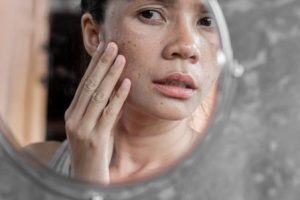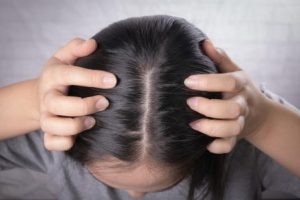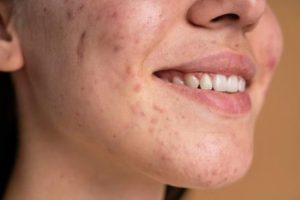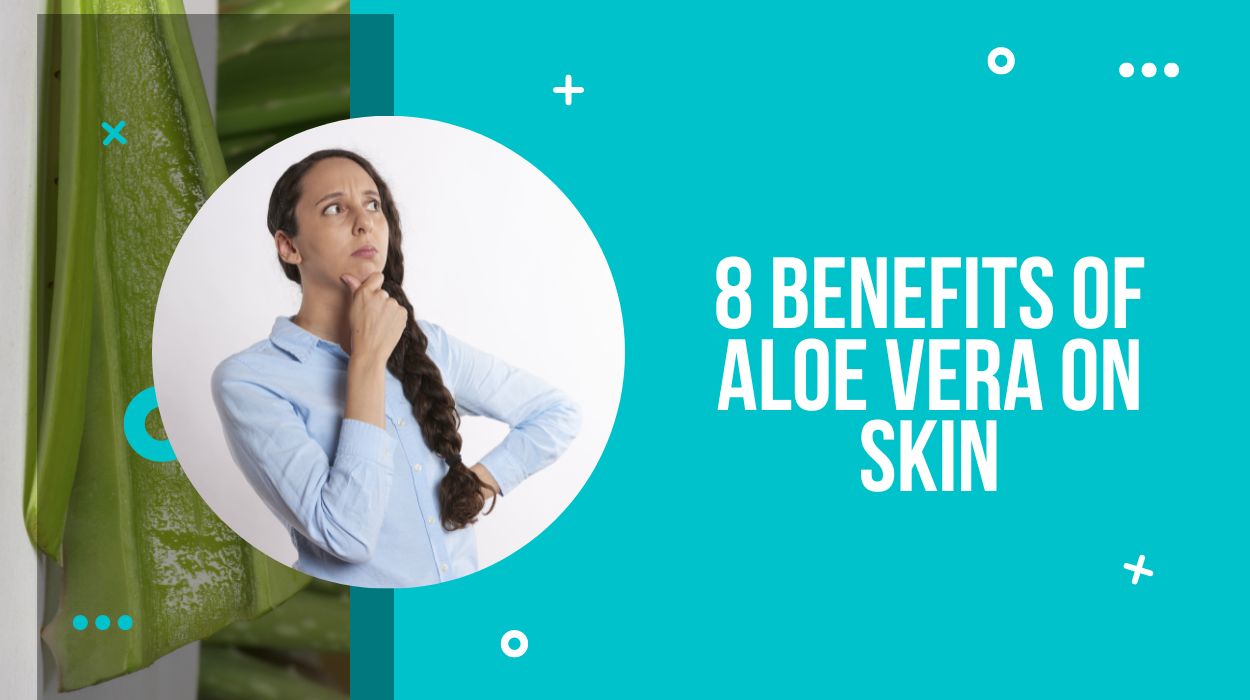When it comes to herbal medicines, aloe vera tops the list. Whether you’re dealing with acne, sunburn, or simply dry skin—this gel-based plant works wonders. No kidding, the Greeks even used it to cure baldness.
In recent times, aloe vera has made a comeback for topical skin conditions in both raw and infused products. However, despite all these grand claims, you may still be wondering if it’s safe to use on skin.
No worries, this article provides you with all the science-backed benefits of aloe vera, along with a list of ways you can use it (correctly) on your skin.
8 Aloe Vera Benefits for Face and Skin
1. It soothes sunburn

The one widely accepted usages of aloe vera are to soothe sunburned skin. It not only provides moisture to the skin but there are also many healing properties in aloe vera that can even work on second-degree burns.
Although we wouldn’t recommend aloe vera as your go-to treatment for burns, it can certainly help in speeding up the healing process and leave no scars behind. Aloe vera also has aloin, an anti-inflammatory substance, in huge proportions.
It also contains a large number of anti-oxidants, including metallothionein, which provides protection against harsh UV rays. Since this plant is 99% water-based, it offers hydration to the skin and helps fight dry skin and skin peeling.
2. Reduce dark spots easily

Dark spots appear on your skin for various reasons, and always leave a mark on your self-esteem. It is also known as hyperpigmentation which can be a result of overt sun exposure, acne, and even aging.
However, one thing that is strikingly common in all these dark spots: they’re extremely stubborn. Don’t worry, a substance or compound known as aloesin in aloe vera can help lighten them.
There are even studies that suggest aloesin can work effectively in treatments for hyperpigmentation caused by UV rays. You can apply aloe vera every day for at least 15 days to see the results surfacing.
Another study says that you can reduce or stop further hyperpigmentation by applying aloesin topically. It restricts your face from producing or overproducing melanin which gives rise to dark spots.
3. It can be used as a soothing scalp mask

Although a minimal investigation is carried out on aloe vera as a scalp mask, all the therapeutic features of the plant apply to the scalp (as it is skin, as well). It possibly has all the moisturizing, anti-inflammatory, and antimicrobial benefits on the scalp.
It can help to relieve, dissipate, replenish, and hydrate the scalp. The mask can also help with strengthening and building smooth hair follicles. It may also be used to maintain shiny hair and prevent the removal of dead skin cells.
4. Aloe vera contains anti-aging properties
Hydrated skin is healthy and happy, and since we all know, sufficient hydration helps in avoiding visible signs of aging (e.g.: fine lines and wrinkles).
Likewise, it increases the creation of skin hyaluronic acid, collagen, and elastic tissue, which are all essential for membrane permeability, firmness, and suppleness and naturally decline as skin ages. Furthermore, it may have the capacity to replenish and retain skin hydration.
The cosmetic use of aloe vera has been shown to help rebuild skin elasticity and minimize the impression of fine wrinkles.
5. May aid in the healing of acne

According to research, aloe may have antibacterial properties and might help acne-prone skin. You mustn’t take them for replacement of normal acne medications, but rather in addition to them.
Aloe vera is indeed a natural substance of salicylic acids, as well as antibacterial and anti-inflammatory properties that can help with outbreaks like blackheads and whiteheads.
Science backs up Aloe’s acne-fighting properties: one study found that combining topical aloe with tretinoin cream was beneficial in the treatment of non-inflammatory and inflammatory acne.
6. It relieves psoriasis and eczema
Skin conditions such as seborrheic dermatitis indicate a generalized inflammation and a compromised skin barrier, which are both addressed by aloe vera.
Furthermore, skin with a compromised barrier is more prone to be fungal and bacterial, and aloe vera has medicinal qualities against fungus, bacteria, and viruses.
According to the Mayo Clinic, using Aloe Vera treatment for psoriasis may indeed help to reduce scaling, inflammation, and disorder aggravation.
7. Treatment and prevention of dandruff
Aloe vera has been shown to be an excellent therapeutic therapy against the development of seborrheic dermatitis on the scalp.
According to one study, the use of aloe vera on the scalp decreased the symptoms of scaling and itching substantially.
The antibacterial and antifungal characteristics of the plant help prevent dandruff and even cure it entirely, according to another study.
8. May help reduce and even remove stretch marks
The stretch marks are always an unwanted sign of skin for both ageing and pregnancies. Some studies have shown that the topical use of aloe vera reduces the look and prevents distortion.
The ability of aloe to assist detect stretch marks is usually related to its restrictive and anti – inflammatory properties, however unsure regarding the accurate method.
How do I use Aloe Vera On My Skin?
Let us examine several other ways in which this versatile gel may aid:
1. As a sunburn soother
The far more popular application for gel starts with its fast sunburn treatment. Just rub on the flammable area and feel an immediately soothing effect—purchase 100% fresh aloe minus tough additives that may aggravate sunburn (more info in a moment).
2. Like a mask for the face
As a cooling, calming face mask, Aloe Vera prevails. Take the following ingredients with your aloe and (if you wish):
- Mix the aloe with other ingredients in a container until they have stretchy consistency.
- Put the mask on your face, and let it sit for a couple of minutes. The technique usually takes 5 to 10 minutes. Don’t allow it to stay for more than 20 minutes, because it might lose its moisture and cause irration if it lingers on the skin for too long.
- Face should be completely rinsed and patted dry.
- To keep all of the moisture in, use an occlusive cream or oil.
3. As an on-the-spot therapy
Since aloe is a naturally occurring substance that contains salicylic acid, it does a really good spot therapy — you know that it needs to be blasted overnight if you have a lingering blister.
The emollient component also supports inflammation prevention (which is generally the root of acne). Just dab the area with some aloe and get over it.
Extracted Aloe Vera vs Aloe Vera Gel
Perhaps, an aloe extract product may not have the same advantages as a fresh aloe gel schmearing.
These aloe vera products cannot be suggested to be the best way to include aloe vera in your skin care routine. However, they can certainly offer some skin-soothing benefits, as well as many formulations may have other moisturizing elements!
But 100 percent pure gel is the greatest if you are looking to calm your skin or simply look for straight-up aloes. Try to use a fresh leaf of aloe vera instead of commercial gels you find in your grocery store (it is usually way better).
Yes, the one thing to take care of is to use the aloe vera pulp as soon as possible. Similar to anything that’s natural, if you take too long to use it, it can go bad very quickly and the benefits will diminish over time.
Additionally, you must not use commercial products infused with aloe vera as they contain preservatives and additives that may be harmful to your skin. Kudos to you if you cultivate your own aloe vera plant, it is difficult yet rewarding work. You will be able to collect fresh aloe vera pulp at your own convenience.
In any case, where you do buy a commercial product for aloe vera, make sure you use one with other natural ingredients. Don’t buy it if you do not have trust in the product or the brand it comes from.
Last note
Although there are many new botanical miracles hitting the market, aloes have been applied to the skin for thousands of years and are shown to be good for the skin. In other words, aloe vera has been tried and tested, it is not the newest or trendiest skincare product on the market. You can always trust aloe vera to do its job on your skin.


